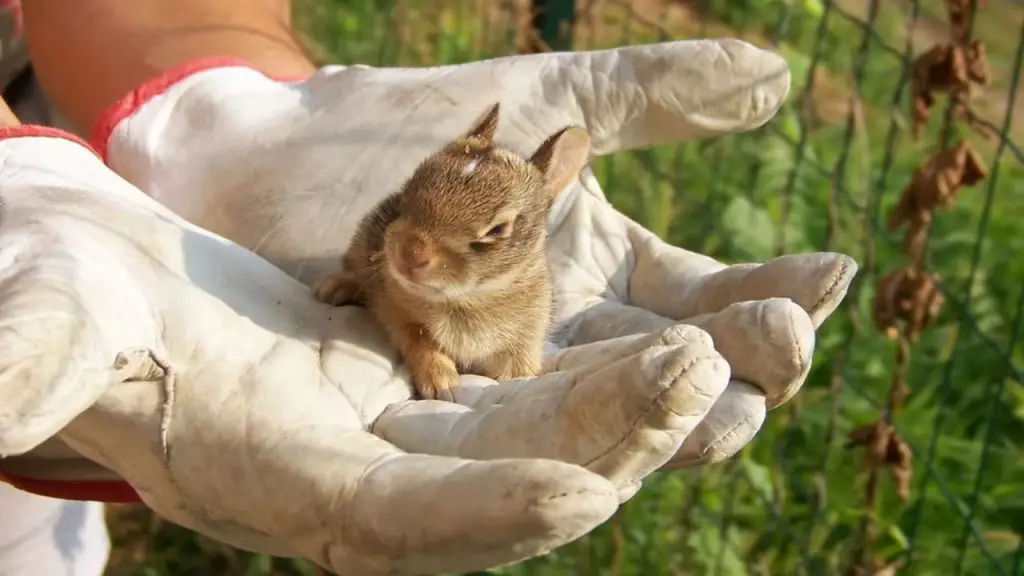Baby bunnies, also known as kits, are young rabbits that are typically born in litters of four to twelve. They are born hairless and blind and depend on their mother’s milk for nutrition during their first few weeks of life.
As they grow, they become more active and curious, developing their own unique personalities. Bunnies are some of the cutest and most lovable pets out there, and when it comes to baby bunnies, the level of cuteness goes through the roof.
These adorable little creatures require a lot of care and attention, especially during their early weeks of life. Whether you’re a new bunny parent or an experienced one, taking care of baby bunnies can be a rewarding experience that brings joy and warmth to your heart.
In this blog post, we will delve into the essentials of bunny care, covering everything from setting up a secure habitat to feeding and socializing your furry companion as well as addressing common health concerns that may affect young rabbits and outlining measures to prevent them.
So, let’s begin our journey of learning how to care for these delightful little creatures.

1. How to Take Care of a Baby Bunny?
1.1 Habitat setup
Giving your baby bunnies a safe and comfortable living space is crucial for their well-being. A designated cage or pen that is spacious enough for them to move around and play in is essential. A good rule of thumb is to provide at least 4 feet of length, 2 feet of width, and 2 feet of height for one or two baby bunnies.
The bedding you choose for your baby bunny’s living space is also important. A soft and absorbent material, such as hay or wood shavings, will keep them comfortable and help absorb any accidents. However, be sure to avoid cedar or pine shavings as they can be harmful to rabbits.
To ensure your baby bunnies have a cozy place to rest and sleep, provide a nesting box. A cardboard box or plastic bin that is spacious enough for them to move around in, filled with hay or shredded paper, will make for a comfortable sleeping area.
Toys and enrichment items will help keep your baby bunnies entertained and mentally stimulated. Safe chew toys, cardboard boxes, and tunnels are all great options to provide them with.
1.2 Proper Feeding for baby bunnies
Their diet should be high in fiber and low in protein. A good place to start is with high-quality alfalfa hay. This provides the necessary fiber and nutrients that baby bunnies need. Alfalfa hay should make up the majority of their diet.
You can also supplement your baby bunnies’ diet with fresh vegetables and fruits but in small amounts. Excellent vegetable options include kale, spinach, and romaine lettuce. For treats, you can offer fruits like apples, bananas, and berries.
Introducing new foods to your baby bunnies should be done gradually to avoid digestive problems such as diarrhea or upset stomach. Start by offering them a small amount of new food and slowly increase the quantity over time. This will allow their digestive system to adjust to the new food and prevent any discomfort.
To ensure your baby bunnies maintain a healthy diet and avoid digestive issues, it’s best to steer clear of commercial rabbit pellets. These pellets are often high in protein, which can cause discomfort. Instead, prioritize feeding them hay and fresh vegetables, and fruits.
A diet of high-quality alfalfa hay and small amounts of fresh vegetables and fruits is key to providing proper nutrition for your baby bunnies. Introduce new foods slowly and avoid commercial rabbit pellets to ensure their digestive health.
1.3 Litter Training Your Baby Bunnies
Litter training your baby bunnies can be done similarly to how you would train a cat. Begin by placing a litter box in their living space and adding some of their droppings into the litter box to encourage them to use it.
Keep the litter box clean by scooping out the soiled litter daily and changing the litter regularly. Gradually, your baby bunnies will get used to using the litter box as their designated bathroom area.
Patience is key when it comes to litter training your baby bunnies, so be consistent with your efforts and provide positive reinforcement to encourage good behavior.
1.4 Socialize baby bunnies with humans and other pets
Socializing baby bunnies with humans and other pets is an important process to help them become friendly, well-behaved, and comfortable around people and animals.
Start socializing your baby bunnies with humans as early as possible. Handle them gently and frequently, making sure to support their bodies properly. Talk to them in a calm and gentle voice.
Give them treats like small pieces of vegetables and fruits to encourage positive interactions with humans. Always use positive reinforcement, never punishment, to encourage good behavior.
Introduce your baby bunnies to other pets slowly and carefully. Start with short supervised interactions in a neutral area. Always supervise the interactions and be ready to intervene if necessary.
Make sure the other pets are calm and well-behaved around the baby bunnies. Reward the other pets for calm and gentle behavior.
Gradually increase the length and frequency of interactions as the baby bunnies and other pets become more comfortable with each other. Be patient, as this process can take time.
Monitor your baby bunnies for signs of stress, such as excessive grooming, hiding, or aggression. If you see any of these signs, reduce the intensity of the interactions and give them more time to adjust.
Overall, socializing baby bunnies with humans and other pets requires patience, gentle handling, and positive reinforcement. By following these tips, you can help your baby bunnies become friendly and well-adjusted companions.
1.5 Temperature
Baby bunnies are not able to maintain their body temperature effectively, so it is essential to provide them with warmth. You can achieve this by using a heating pad or heat lamp set to a low temperature and maintaining the temperature at around 85-90 degrees Fahrenheit.
It’s important to use a thermometer to monitor the temperature and adjust the heat source as needed. As the bunnies grow, you can gradually decrease the temperature until they can regulate their own body temperature.
It’s crucial to avoid making the heat source too close to the bunnies, as it can cause discomfort and overheating. If you notice any signs of overheating, such as panting or sweating, it’s essential to provide them with a cooler area, such as a nest with a cooler side.
1.6 Monitor their health
It’s important to be on the lookout for any signs of illness, such as a lack of energy or appetite, diarrhea, or discharge from the eyes or nose.
If you notice any of these symptoms, it’s important to seek the advice of a veterinarian as soon as possible. They can diagnose the problem and recommend the appropriate course of treatment to help your baby bunnies get back to their healthy selves.
Regular checkups with a veterinarian can also help to prevent health problems before they occur. By monitoring their health and getting them the care they need, you can help ensure that your baby bunnies grow up healthy and strong.
2. Common health issues in baby bunnies and how to prevent them
As a responsible bunny owner, it is important to be aware of the common health issues that affect baby bunnies and take steps to prevent them.
Here are some of the most common health problems that baby bunnies can experience:
- Gastrointestinal stasis: This is a condition where the bunny’s digestive system slows down, leading to a decrease in appetite, bloating, and discomfort. It can be caused by a lack of fiber in the diet, stress, or dehydration.
- Diarrhea: This can be caused by a bacterial infection, stress, or a diet that is too high in sugar or fat. Diarrhea can be dangerous for baby bunnies, as it can lead to dehydration and nutrient loss.
- Dental problems: Rabbits’ teeth grow continuously throughout their lives, and if they do not wear down properly, they can cause pain, infections, and even abscesses.
- Respiratory infections: Baby bunnies are prone to respiratory infections, which can be caused by exposure to drafts, dampness, or dust.
- Parasites: They can be affected by a range of parasites, including fleas, ticks, and mites, which can cause itching, irritation, and even anemia.
Preventing these health issues in baby bunnies requires a combination of proper care and attention to their diet, environment, and hygiene.
- Provide a balanced diet: As mentioned above in the article, a diet high in fiber is essential for a bunny’s digestive health. Make sure your bunny has access to plenty of hay, fresh vegetables, and a small number of high-quality pellets.
- Keep their living environment clean and dry: Baby bunnies are sensitive to dampness and drafts, so it’s important to keep their living area clean, dry, and free from mold and mildew.
- Monitor their behavior and appetite: Watch your baby bunny for any signs of lethargy, loss of appetite, or changes in behavior, as these can be indicators of a health problem.
- Regular vet check-ups: Take your baby bunny to the vet for regular check-ups, especially in the first few months of its life.
- Parasite prevention: Use flea and tick preventatives and regularly clean your bunny’s living area to prevent parasites from taking hold.
Conclusion
In this article, we have discussed the basic things you need to do to take good care of your bunny. This includes making sure they have a safe home, giving them the right food, and spending time with them. We also discussed common health problems that baby bunnies can have and what you can do to stop them from happening.
We hope that you found this information useful. Thanks for sparing your time to go through it.
FAQ
How to take care of baby bunnies without a mother?
To take care of baby bunnies without a mother, you should keep them warm with a heat source and a soft bed, feed them regularly with warm kitten milk, stimulate them to go to the bathroom, monitor their health for any signs of illness or distress, and provide them with a safe and clean environment.
Do newborn baby bunnies drink water?
Newborn baby bunnies typically do not drink water during the first few weeks of their life as they get all the necessary fluids and nutrients from their mother’s milk. However, once they start eating solid food, they will need to have access to fresh water at all times to stay hydrated.
Baby bunnies should not be given water before they are ready, as it can cause health problems. The right time to start offering water to baby bunnies is around 3-4 weeks of age, but you should consult with a veterinarian or an experienced rabbit breeder for guidance on the appropriate time to introduce water to baby bunnies.
Do Rabbits Reject Their Babies?
It is rare for a mother rabbit to reject her newborn bunnies, but it can happen if she is stressed, scared, or sick. However, the mother rabbit may leave her babies alone for long periods, which is normal.
If you suspect that the mother rabbit has rejected her babies, it’s important to seek veterinary care or the assistance of an experienced rabbit breeder immediately. In some cases, the baby bunnies may need to be hand-raised to ensure their survival.
Additional Posts:


